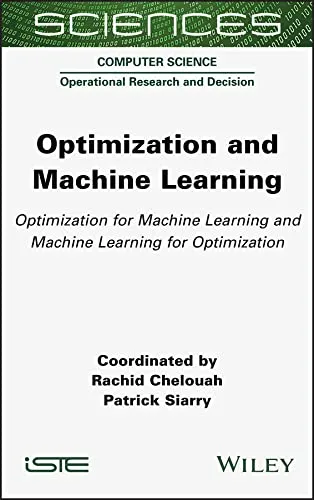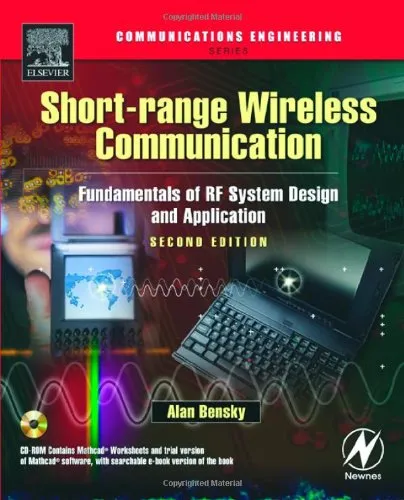Game theory in wireless and communication networks : theory, models, and applications
4.5
Reviews from our users

You Can Ask your questions from this book's AI after Login
Each download or ask from book AI costs 2 points. To earn more free points, please visit the Points Guide Page and complete some valuable actions.Related Refrences:
Introduction to "Game Theory in Wireless and Communication Networks: Theory, Models, and Applications"
"Game Theory in Wireless and Communication Networks: Theory, Models, and Applications" is a definitive examination of how game-theoretic tools can be applied to solve complex challenges in wireless communication systems and networks. With the rapid advancement of wireless technology and the ever-growing need for efficient communication solutions, this book serves as a fundamental resource for researchers, practitioners, and students seeking to bridge the gap between theoretical principles and real-world practical applications.
Authored by Zhu Han and a team of highly respected experts in game theory and wireless networks, the book provides a foundational understanding of game-theoretic concepts while illustrating their relevance and adaptability to contemporary wireless communication problems. It captures the theoretical rigor, practical applicability, and the interdisciplinary charm of game theory that has made it instrumental in optimizing wireless network performance.
Detailed Summary of the Book
The book spans several critical topics in wireless communication networks and delves deeply into how game-theoretic models can be applied to ensure efficiency, fairness, and optimal results. Early chapters introduce fundamental notions of game theory, including cooperative and non-cooperative games, Nash equilibrium, mixed strategies, and Pareto optimality. These concepts are laid out in a manner that is accessible to newcomers, while still sufficiently rigorous for advanced researchers.
Subsequent sections are dedicated to specific challenges in wireless communication, such as resource allocation, interference management, power control, and spectrum sharing, where game theory applications shine. The book examines cases ranging from infrastructure-based wireless systems to ad hoc and sensor networks, offering a broad view of how diverse game-theoretic approaches can solve practical problems in different types of wireless environments.
Furthermore, the authors extend their discussions to address advanced topics, including evolutionary games, auction theory, coalitional game theory, and learning in games, to reflect the growing sophistication of wireless network systems. Real-world case studies and examples are included to reinforce theoretical analyses, bridging concepts with applications.
Key Takeaways
- Bridging Theory and Practice: The book skillfully combines game-theoretical frameworks with practical wireless networking problems to provide actionable insights.
- Comprehensive Coverage: From basic principles to advanced concepts in game theory, the book offers a full-spectrum understanding of the subject tailored to wireless communication needs.
- Real-World Relevance: By using detailed case studies and examples, readers can see how theoretical frameworks translate into deployable networking models.
- Multi-Disciplinary Approach: It addresses problems cutting across engineering, economics, and applied mathematics, demonstrating the interdisciplinary nature of game theory.
- Future-Ready Insights: The book emphasizes emerging topics like learning in games, making it invaluable for understanding the future of wireless networks driven by AI and machine learning.
Famous Quotes from the Book
"Game theory is not only a tool for solving problems in wireless and communication networks—it is also a lens through which we can understand the inherent structure of competition and cooperation in distributed systems."
"The interaction between game theory and wireless networks is not merely beneficial; it is inevitable in the era of decentralized systems and resource-hungry applications."
Why This Book Matters
As wireless communication networks evolve and become increasingly complex, finding optimal solutions to issues like resource management, interference, and security is more critical than ever. Traditional tools often fall short when addressing the decentralized and dynamic nature of modern networks. Game Theory provides a powerful set of tools to model and analyze interactions among users and devices, making it uniquely suited to meet these challenges.
This book is a must-read because it goes beyond simple theory, offering a practical playbook for applying game theory in wireless and communication problems. Whether you are a researcher aiming to develop cutting-edge wireless solutions, a practitioner managing network efficiency, or a student eager to dive into the future of wireless technologies, this book equips you with the knowledge and tools to succeed in a rapidly evolving field.
By combining expertise, clarity, and foresight, "Game Theory in Wireless and Communication Networks: Theory, Models, and Applications" redefines how we approach challenges in wireless systems, making it an essential resource for anyone invested in the future of communication networks.
Free Direct Download
You Can Download this book after Login
Accessing books through legal platforms and public libraries not only supports the rights of authors and publishers but also contributes to the sustainability of reading culture. Before downloading, please take a moment to consider these options.
Find this book on other platforms:
WorldCat helps you find books in libraries worldwide.
See ratings, reviews, and discussions on Goodreads.
Find and buy rare or used books on AbeBooks.



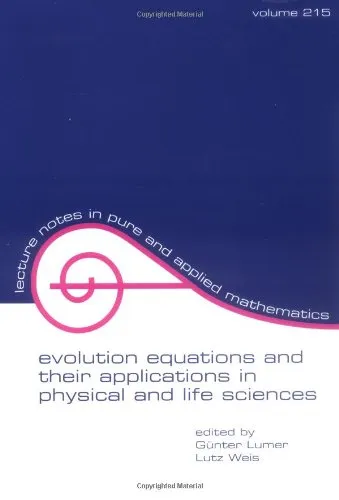
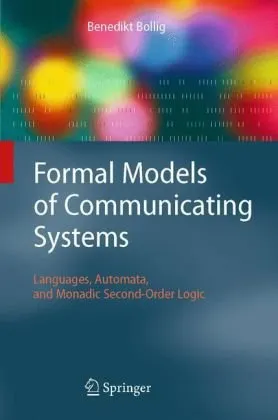
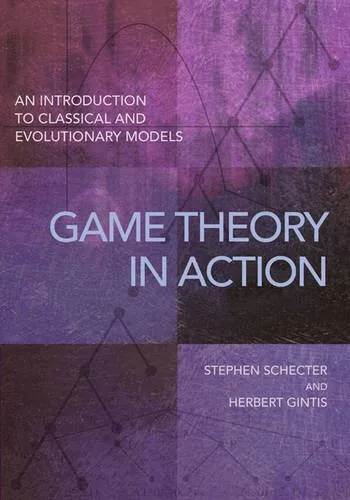
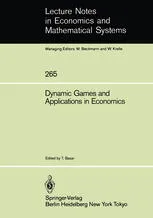
![Building Data Science Applications with FastAPI: Develop, manage, and deploy efficient machine learning applications with Python [Team-IRA]](https://s3.refhub.ir/images/thumb/Building_Data_Science_Applications_with_FastA_31328.webp)


